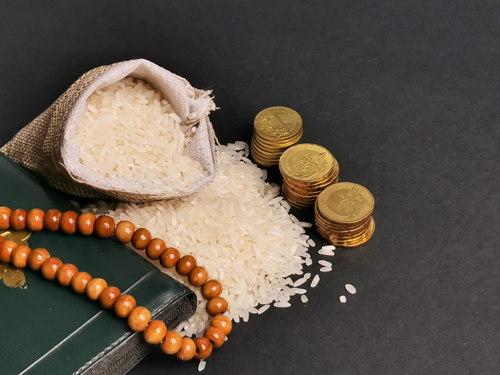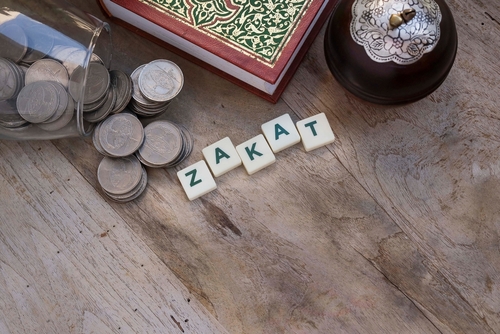Everything we have in the world is only an entrustment from Allah Swt, including the material treasures we have in the world. In the Quran surah, At-Taghaabun Allah says that the treasures he gives in the world are trials for man. Meanwhile, in another surah, Allah also mentions the right of the poor to our property.
For this reason, God requires His people to issue Zakat for their possessions. Zakat was then known as Zakat Mal or zakat of wealth. The calculation has also been regulated by Islam, which is 2.5 percent of the total property. However, what if the zakat payment is paid in installments, whether it is allowed or not?
Baca juga: Top Brand Award 2022: Dompet Dhuafa Badan Amal dan Zakat Terbaik di Mata Masyarakat
The Law of Paying Zakat in Installments
Zakat payments that are paid in installments are divided into installments before the time of the obligation or at the end of the year (haul) and installments of Zakat, the whose due time has been missed. Most scholars argue that if a Muslim wants to repay Zakat before the time of his haul, then the law is permissible.

For example, Mr. Ahmad has 250 million in savings. However, Mr. Ahmad felt that it was difficult if the Zakat from his savings was issued at once at the end of the year or haul time. Then, he can pay in installments of his Zakat every month. If Mr. Ahmad’s Zakat has arrived at the time of his haul, then he only needs to pay the remaining mandatory Zakat from the value of his savings only if his savings increase in a year.
If the accumulation of zakat installments has met the mandatory value of Zakat for savings worth IDR 250 million, then Mr. Ahmad no longer needs to pay Zakat at the end of the year. On the other hand, if the value of his zakat installments is more than the value of the Zakat that he has to spend because his savings have been reduced in a year, then the excess Zakat has been issued by Mr. Ahmad becomes alms for him.
Baca juga: Jenis Harta yang Wajib Dikeluarkan Zakatnya
The scholars allow a person to repay Zakat only if the zakat giver or muzaki has owned property that reaches nisab (minimal limits on a person’s wealth obligated to pay Zakat), has no debt, and has passed the one year of Qamariyah (haul).
The law of allowing the payment of Zakat in installments rests on the hadith of Abbas Radhiyallahu ‘anhu. It is said that Abbas Ra asked the Prophet Muhammad Saw for permission to advance the payment of his Zakat and was allowed by the Messenger of Allah.
Abbas pleaded with the Messenger of Allah Saw about moving zakat before his obligatory time, and then he gave him leniency in that regard.” (H.R. Abu Dawud no. 1624)

Paying Zakat Installments After Passing the Haul
Meanwhile, the scholars agree that it is not allowed for zakat payments that are paid in instalments when the haul has been missed. The reason is Allah Swt forbids His people to procrastinate in paying Zakat. It is as mentioned in the Quran surah Al-An’am below:
“And give it (its zakat) rights at the time of reaping the rewards.” (QS. Al-An’am: 141)
The verse contains the command of Allah Swt, and based on the rules of the law of Fiqh, Allah’s command requires it to be carried out immediately.
However, according to the Practical Ziswaf Handbook written by Ustaz Abdul Rochim Lc, in the case of a person who is unaware of or forgets to issue Zakat that should have been issued in previous years, he may pay in installments the Zakat.
Baca juga: Ini Peran Zakat dalam Memberantas Kemiskinan
Regarding this, the scholars agreed that the person was obliged to issue his Zakat immediately. If he can, he must immediately pay his Zakat in one lump sum. However, if he can’t afford to pay it directly, he can pay in instalments.
For example, Mr Rahman owned 90 grams of gold from Ramadan 1430H to Ramadan 1432H. But during the year, he never paid his gold zakat, which had reached nisab. Then, in 1433H, the gold was spent by Mr Rahman. In 1434H, it was only then that Mr Rahman realized that he had not been giving away his property.
If Mr Rahman takes it all at once, it will undoubtedly cause economic shocks to his family or business. Therefore, in cases like this, a person can pay in instalments for his Zakat. Wallahualam bisshawab…



